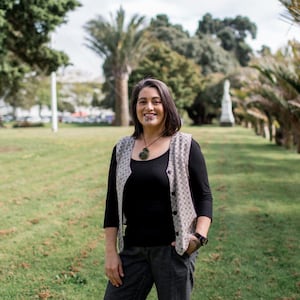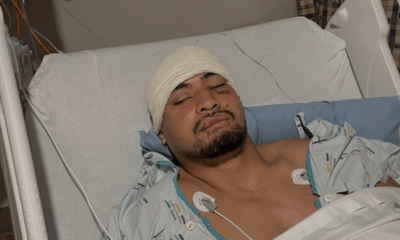Health
Researchers Investigate HIV Prevention Gaps Among Māori Communities

A new research initiative is set to explore the barriers preventing Māori populations in Aotearoa from accessing HIV prevention services, despite their increased risk of advanced HIV diagnoses. Funded by the Health Research Council (HRC), the three-year study, titled Rukua ki te rēkōtanga o te wai: Stemming the tide of HIV inequity in Aotearoa, aims to delve into the experiences of Māori individuals regarding sexual health care and the utilization of pre-exposure prophylaxis (PrEP), a medication that significantly reduces the risk of HIV infection.
Dr. Tanya Allport, the project lead and senior researcher at Whakauae Research Services, emphasized the importance of this study in addressing existing inequities in HIV prevention efforts. “This research is a timely step to ensure that Māori communities receive the necessary support and resources to combat HIV effectively,” she stated.
The study’s objectives include understanding the unique challenges faced by Māori in accessing sexual health services, identifying cultural barriers, and assessing the overall effectiveness of current prevention strategies. By focusing on these critical aspects, the research aims to provide actionable insights that can inform public health policies and improve service delivery.
Māori communities in Aotearoa have historically faced disparities in health outcomes, and HIV is no exception. Current statistics indicate that Māori are diagnosed with advanced HIV at higher rates than other populations. This alarming trend highlights the urgent need for targeted interventions that resonate with the cultural values and preferences of Māori individuals.
The research will involve qualitative interviews and community engagement to gather firsthand accounts of experiences with sexual health care. By centering the voices of those directly affected, the study seeks to develop a comprehensive understanding of the barriers to PrEP uptake and other preventive measures.
Dr. Allport noted that previous research has revealed significant gaps in awareness and access to HIV prevention resources among Māori populations. “Understanding the reasons behind these gaps is crucial for developing effective strategies that not only increase awareness but also promote equitable access to necessary health services,” she added.
As the study unfolds, there is hope that its findings will lead to improved health education and resources tailored to the needs of Māori communities. The emphasis on culturally appropriate care is expected to foster greater trust and engagement with healthcare providers, ultimately leading to better health outcomes.
The initiative aligns with broader efforts in Aotearoa to address health inequities and promote inclusive practices within the healthcare system. By focusing on the intersection of culture and health, this research aims to pave the way for more effective HIV prevention strategies that can be adopted on a larger scale.
In conclusion, the investigation into the barriers faced by Māori in accessing HIV prevention services marks a significant step towards addressing critical health disparities. With the support of the Health Research Council and the leadership of Dr. Allport, the findings from this research could potentially reshape the landscape of HIV prevention in Aotearoa, ensuring that all communities receive equitable care and resources.
-

 World4 months ago
World4 months agoTest Your Knowledge: Take the Herald’s Afternoon Quiz Today
-

 Sports5 months ago
Sports5 months agoPM Faces Backlash from Fans During Netball Trophy Ceremony
-

 Lifestyle5 months ago
Lifestyle5 months agoDunedin Designers Win Top Award at Hokonui Fashion Event
-

 Entertainment5 months ago
Entertainment5 months agoExperience the Excitement of ‘Chief of War’ in Oʻahu
-

 Sports5 months ago
Sports5 months agoLiam Lawson Launches New Era for Racing Bulls with Strong Start
-

 Top Stories2 weeks ago
Top Stories2 weeks agoTongan Star Eli Katoa Shares Recovery Update After Surgery
-

 World5 months ago
World5 months agoCoalition Forms to Preserve Māori Wards in Hawke’s Bay
-

 Health5 months ago
Health5 months agoWalking Faster Offers Major Health Benefits for Older Adults
-

 Lifestyle5 months ago
Lifestyle5 months agoDisney Fan Reveals Dress Code Tips for Park Visitors
-

 Politics5 months ago
Politics5 months agoScots Rally with Humor and Music to Protest Trump’s Visit
-

 Top Stories5 months ago
Top Stories5 months agoUK and India Finalize Trade Deal to Boost Economic Ties
-

 Health2 months ago
Health2 months agoRadio Host Jay-Jay Feeney’s Partner Secures Visa to Stay in NZ









